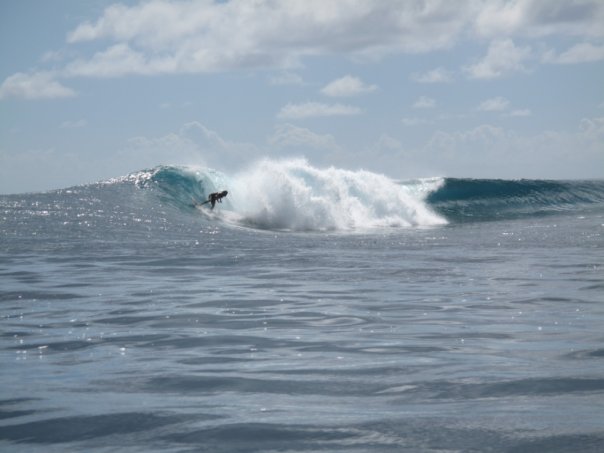Making waves
Redmap Tasmania first made waves in 2009 when it was launched from the Institute for Marine and Antarctic Studies (IMAS) by Dr Gretta Pecl. Redmap came from the idea of capturing information that everyday people can contribute - particularly fishers, divers and boaters - to help record and track potential changes in the distribution of marine species. Redmap is an online tool that captures important information on species ranges by extending the research team to include citizen scientists to amass far more data than a pure research monitoring system could. Additional benefits come in raising awareness amongst all of us that use or enjoy the marine environment, of the potential changes in our marine ecosystems

The Redmap project has been very well-received by the Tasmanian community – in terms of valuable contributions, lots of community support and also in terms of merit (see below).
Expansion of the project was made possible through several successes in the following funding opportunities – each contributing to various parts of the project development:
- Tasmanian Community Fund
- Department of Agriculture, Fisheries and Forestry
- Australian National Data Service
- Inspiring Australia
- Climate Connect, Tasmanian Climate Change Office
We want to acknowledge the generous contributions of so many others (go here to see our supporters) – without whom the project would not be the success it is today. Particularly we would like to thank the ongoing support from the Australian public – whether you have logged a sighting, visited our website, mentioned our project to fishers or divers or drank from one of our water bottles. We are grateful and acknowledge with pride the public contribution to the Redmap project.
Riding the waves
The success of Redmap Tasmania and the volunteers that are involved has been recognised through a number of awards and nominations – including - the Royal Zoological Society of NSW 2010 Whitley Awards for outstanding publications and the University of Tasmania’s Vice Chancellor’s Award for Outstanding Community Engagement 2011. In 2012, Redmap was recognised in the Tasmania Together program for promoting community collaboration and participation in marine science research in Tasmania; and we were also a finalist in the Recreational Fishing Awards for Excellence in Support of Research Outcomes.
Finding bigger waves
The expansion of Redmap to a national scale (Redmap Australia) has been on the cards for some time, but was helped along by successful funding in the 2012 Inspiring Australia strategy, along with the Department of Agriculture, Fisheries and Forestry (DAFF) and the Australian National Data Service (ANDS) funding – and in combination with interest and involvement from regions and people across the country.
The national project will allow gaps in data and knowledge to be filled on a scale that is useful for management and research. Redmap can act as an early indication of changes occurring in the marine environment, and has the potential to play a vital role in directing management decisions and actions.
Expanding Redmap to a national level will increase public engagement and promote awareness of changes in our marine systems that may be linked to environmental changes.
Lots of species from all around the world are being reported as shifting where they live in response to a changing climate. Your contributions to Redmap Australia will help us develop an extensive database on which Australian marine species may be shifting where they live. Redmap will be an important tool allowing data sharing and collaboration between scientists, managers and community members on a national scale, helping to promote understanding and cross-collaboration between different marine users.











